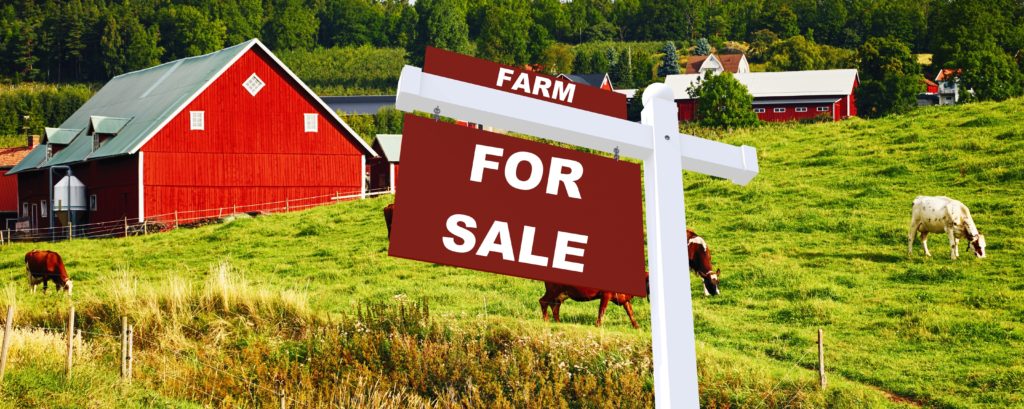
When you are considering buying a farm, it’s important to be prepared for some of the hidden challenges that will come up. A lot of things will seem self-evident but here are a few things to consider that may not be:
A good Real-Estate agent will save you time and money
Farm properties are a unique category of real-estate. There are many complex aspects to purchasing a farm that is not involved in the urban real-estate market. Make sure your agent is knowledgeable in farm and rural issues. Getting a good agent in the mix will save you both time and money when you buy a farm.
Availability of local markets
Although you may not sell all of your main production at the local farmer’s market, these types of locations can add a lot of needed cash flow to the small farmer. Having one nearby will allow you to maintain cash flow throughout the year by marketing complimentary items. If you have some crops that appeal directly to end users, you can maximize your margins by selling directly at the market rather than to resellers.
Infrastructure on Property
What sorts of buildings and improvements are on the property? How many of them are useful to you in your farm business plan? Is there infrastructure or buildings that can be adapted to your needs if they don’t already match them currently? If the farm comes with equipment or a stockpile of resources like hay or firewood you may be able to use them to increase your returns.
History of the land and site evaluation
What sorts of crops or livestock were raised on the property previously? Are there any parts of the property that have had different purposes in the past? The current owners may provide information, but consulting with the neighbors may also yield valuable insights about the farm you are buying.
Tax status & zoning
What will your property taxes be? If the land is zoned as farming, you will have to keep it in production in order to keep the lower farm tax rate. If it’s not zoned for farming, you will have to inquire with the local zoning authority how to get the proper zoning approved.
Soil tests
Comprehensive soil tests and profiling will help you prepare for the best crop choices for your new farm. If you are interested in organic production, it would be wise to test your soil for residues and other heavy metals that may inhibit your ability to grow organically. This can be expensive but worth the investment.
Access to Water
If you plan on buying a farm, this is by far the most important resource to consider before you buy a farm. Water rights law is very complex and making sure you understand your rights and usage is extremely critical. Know if your rights are currently valid and active. What are the water sources on the property? It is also important to know what year your rights date back to. Senior water rights always get water first. Do you have ponds, creeks, or wells that you are legally able to irrigate from? What is the drinking water source? If from a well, test your water for metals and other contaminants.
A little bit of planning while you are looking for your new farm property can save big headaches in the long-run. If you are starting or buying a farm, Farm Grants can help you locate the funding to get your farm business going.
Start or expand your farming business now: Farm Grants can help.
I liked what you said about learning exactly what infrastructure already exists on the farm. Having a place for hay already in place could save you a lot of time, and you could get going on other projects towards getting the farm fully functional. I’ll have to keep this in mind as my husband and I look around for a nice farm to purchase.